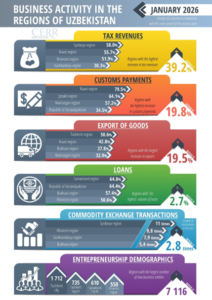Deskilling the Critical Skills

Education, once celebrated as the foundation of democracy, has been hollowed out by neoliberalism into a tool for training compliant workers. What was once a practice of freedom has been reduced to an economy of skills, certifications, and micro-credentials designed not to nurture critical citizens but to produce obedient laborers for global capitalism. In the age of robotics, artificial intelligence, and digital platforms, this reduction takes on an even more dangerous dimension. Robotics and AI are presented as revolutions of empowerment, yet they mask a project of dispossession. What is called a “skills revolution” is in fact the systematic deskilling of young people’s critical and civic capacities. They are promised empowerment but delivered precarity; they are promised literacy but delivered spectacle.
This is not a neutral process of modernization but part of a larger neoliberal pedagogy that functions across all spheres of life. Neoliberalism does not simply privatize schools and health systems; it produces a culture, a way of thinking, a common sense that redefines citizenship in strictly market terms. Education under neoliberalism has become public pedagogy in the worst sense, a pedagogy that teaches young people to see themselves as commodities, their value measured by productivity, adaptability, and technical compliance. The introduction of AI and robotics into education and labor is celebrated as progress, but it further entrenches culture of cruelty in which whole populations are rendered disposable when they fail to meet the shifting demands of capital. This process of deskilling is the extension of capitalism’s old logic into new technological terrain. Marx warned of the alienation of the worker from the means of production; today, AI and automation complete this alienation by stripping workers not only of their tools but of their knowledge. Digital platforms define the skills that count, rendering youth dependent on endless cycles of reskilling dictated by corporations in Silicon Valley or Shenzhen. The laborer is transformed into a precarious, programmable subject whose intellectual and civic autonomy is deliberately undermined. The point is not to produce thinkers but to produce workers who code, click, and comply without questioning why inequality grows as technology advances.
Gramsci’s notion of cultural hegemony illuminates how this system sustains itself. The rhetoric of “digital empowerment” and “future skills” is not merely economic but deeply ideological. Corporations, donor agencies, and governments present narrow technical training as liberation, while media industries elevate tech billionaires into cultural icons, embodying the dream of upward mobility. This is hegemony at work, domination through consent. Parents, students, and teachers internalize the belief that education is valuable only insofar as it produces employability. This is pedagogy as propaganda, where the very capacity to imagine education as a public good is erased. What disappears is the language of justice, solidarity, and emancipation, replaced by the cold vocabulary of competitiveness and efficiency. In the Global South, where robotics labs and AI bootcamps are concentrated in elite urban centers, marginalized communities are left behind or integrated only as low-cost laborers in global supply chains. A coder in Lahore earns a fraction of what a coder in California earns, even for the same outsourced tasks. Gayatri Spivak’s question “Can the subaltern speak?” takes a new twist in this digital order, can the subaltern code? And if they can, who owns the language, the platforms, the profits? Subaltern voices are not just silenced in political discourse; they are erased from the very design of technological systems that privilege Western epistemologies while treating local knowledge and indigenous practices as irrelevant.
This dynamic represents a form of digital colonialism, a new kind of tech imperialism that extracts data, attention, and intellectual capacity from the Global South. Just as colonial powers extracted raw materials, today’s digital empires extract behavioral data from students and patients, turning it into profit for multinational corporations. Health apps collect intimate details of bodies; educational platforms harvest data on learning behaviors. Citizens are transformed into tenants of their own lives, paying rent in the form of data to digital landlords who control access to knowledge, health, and even civic participation. This is tech feudalism, a world in which rights are not guaranteed but leased back to individuals through subscriptions, licenses, and paywalls.
In a society organized around profit, entire populations are treated as disposable. If you cannot code, you are disposable. If your skills become obsolete, you are disposable. If you resist integration into the digital economy, you are disposable. The rhetoric of empowerment conceals a politics of disposability in which youth, particularly from marginalized communities, are disciplined to accept precarity as normal. In this sense, deskilling is not just about the loss of intellectual capacities but about producing subjects who no longer believe they deserve more than disposability.
History is never closed, that education always contains within it the possibility of resistance. Critical pedagogy can challenge the neoliberal project by reclaiming education as a site of democratic imagination. Instead of training students to adapt to the cruelty of the market, educators can create spaces for dialogue, critical literacy, and civic engagement. Paulo Freire called this the pedagogy of the oppressed, where students are not passive recipients but co-creators of knowledge. Education must function as a form of civic practice, preparing young people not for precarious labor but for the responsibilities of citizenship.
Resistance also requires a counter-hegemonic project. Cultural institutions can serve as sites of struggle is crucial. Schools, media, cultural organizations, and social movements must be reclaimed to challenge the inevitability of neoliberal logic. Educators, intellectuals, and activists must expose the myth of the skills revolution and articulate alternative narratives that place human dignity above profit. From a subaltern perspective, this means centering marginalized voices in shaping technology and education, reclaiming sovereignty over data, curricula, and platforms. It means recognizing that indigenous knowledge, local practices, and critical traditions are not obstacles to progress but essential resources for building people-centered societies.
The deskilling of critical skills through robotics, AI, and digital technologies is thus not merely a pedagogical crisis but a civilizational one. It asks whether future generations will inherit the ability to think, to speak, and to act as citizens, or whether they will be reduced to extensions of machines serving the interests of the few. It asks whether education will be a practice of freedom or a mechanism of compliance. Neoliberalism seeks to colonize our imagination, to foreclose the possibility of alternatives. But the task of educators, intellectuals, and citizens is to reclaim imagination as a political act, to insist that another world is possible.
The stakes are enormous. To surrender to deskilling is to accept a world of techno-feudalism, where rights are replaced by subscriptions and where disposability defines the lives of millions. To resist is to reclaim education as a public good, to demand technologies that serve collective flourishing, and to build a pedagogy that nurtures critical consciousness. This is not a matter of abstract philosophy but of survival, for without critical thinkers there can be no democracy, no justice, no freedom. The question before us is whether we will allow education to become a factory of obedience or reclaim it as a laboratory of democracy. The future of civilization depends on the answer.


